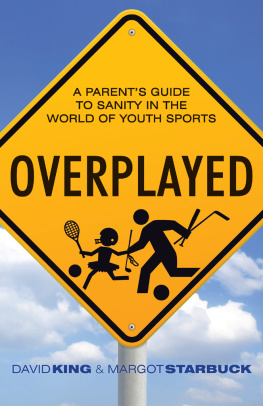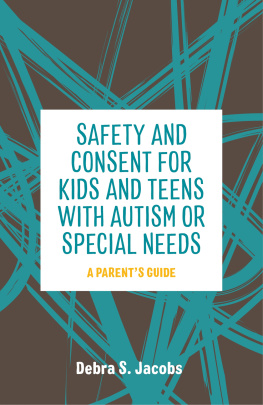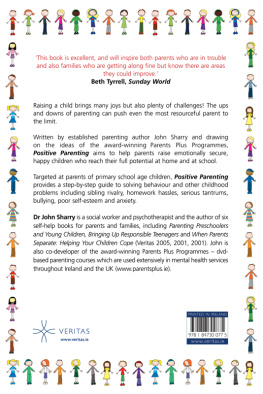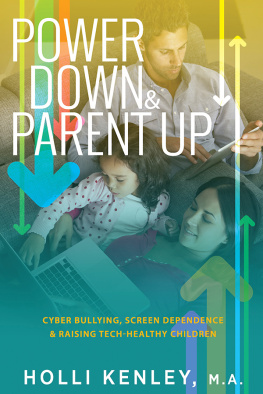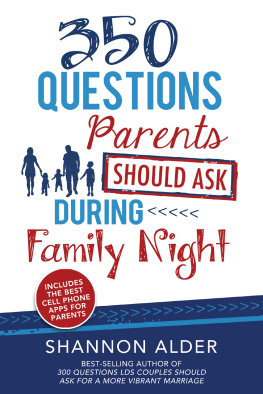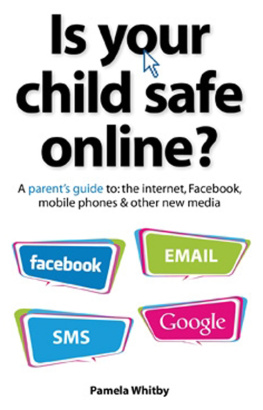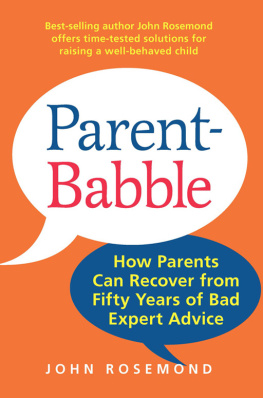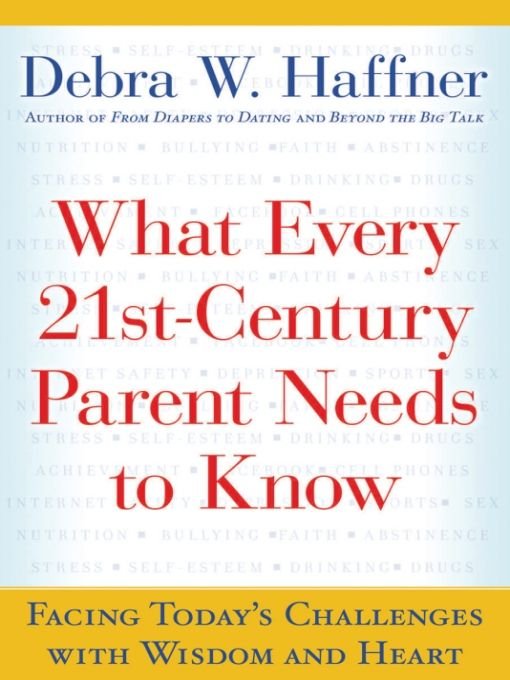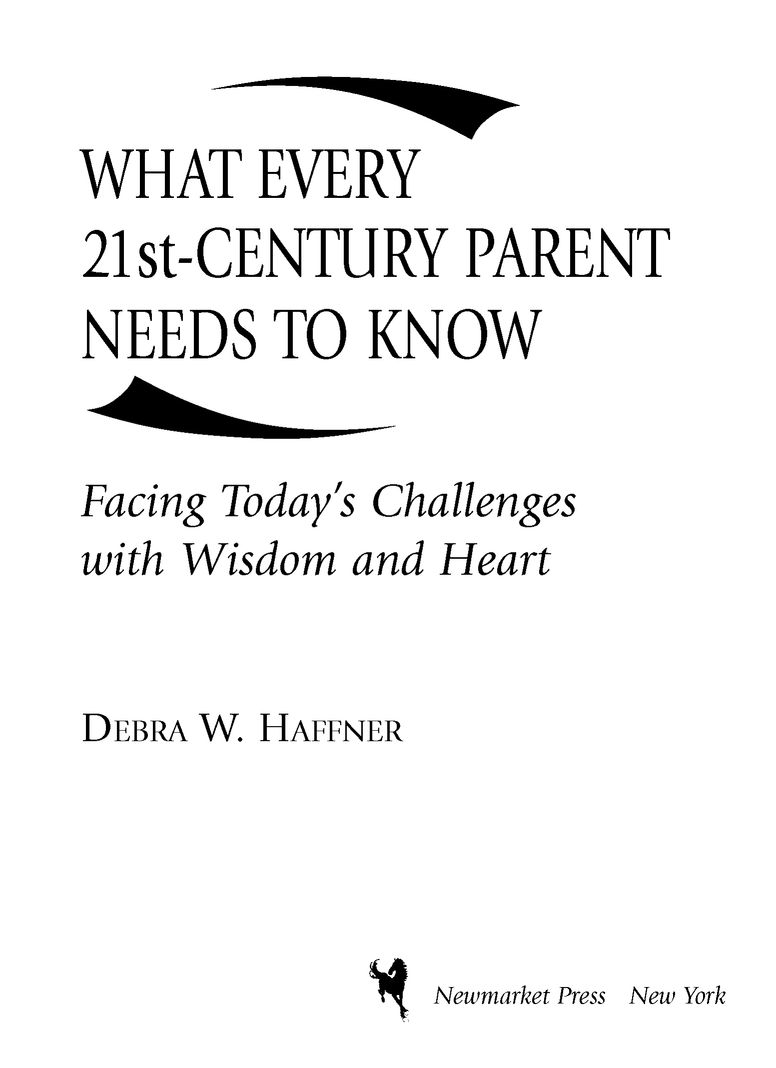Table of Contents
A Time to Heal
Beyond the Big Talk: A Parents Guide
to Raising Sexually Healthy Teens
Exploring the Dimensions of Human Sexuality
(with Jerrold Greenberg and Clint Breuss)
From Diapers to Dating: A Parents Guide
to Raising Sexually Healthy Children
What Ive Learned About Sex
(with Dr. Pepper Schwartz)
To Cynthia Baber, Rosella Fanelli, Barbara Fast, Ledell Mulvaney, Barbara Levi-Berliner, Tess OBrien, and Jodi Wallace, who journey with me in parenting and life.
WRITING A BOOK is a solitary act. Life is not. I am blessed in life by a loving family, a strong network of friends, and brilliant and insightful colleagues. I have felt their presence behind me, supporting me, as I worked on this book.
Many people generously provided information, resources, interviews, and ideas. In alphabetical order, I am indebted to Dr. Andrea G. Barthwell, Dr. Jonathan Fast, Marc Fernandes, Dr. Bill Finger, Dr. Susan Finkelstein, Dr. Merle Hamburger, Dr. David Hanson, Dr. Sandra Hofferth, Dr. Michael Males, and Dr. Bob Selverstone, who freely gave of their time and expertise for in-depth interviews. I am especially grateful to Barbara Levi-Berliner for her gracious sharing of ideas based on her thirty years as a social worker specializing in parenting issues.
Two people deserve special mention in this list: Dr. Kate Ott and Alison Boyle. Both helped me locate research, articles, PDF files, and authors, and prepare reference lists. Alison, a recent graduate of Boston College, provided the first draft of the Appendix, Resources for More Information. My niece, Emily Wallace, a junior at Manhattanville College, checked the final references and resources.
Several colleagues volunteered to read this book when it was in draft and offer comments based on their particular expertise. I am so appreciative of reviews by Kathleen Baldwin, Consuelo Bonillas, Rev. Steve Clapp, Dr. Merle Hamburger, Lis Maurer, Susan Milstein, and Danene Sorace. This book is better for their insights; the mistakes, of course, are all mine.
Writing a book in the midst of raising children and my full-time ministry with the Religious Institute on Sexual Morality, Justice, and Healing was sometimes stressful, to say the least. My most productive writing was done on retreat, away from the requirements of daily life. I am grateful to my husband, Ralph Tartaglione, for filling in for my absences, but also to the people who generously shared their homes for me to write in: my sister-in-law Pat Grande; my friends in Boston and Maine, Ellen Remmer and Chris Fox; Kathryn Booth and Joan Grant in Seal Cove in Acadia, Maine; Jane Fonda in New Mexico; and Esther Margolis and Stan Fisher in Amagansett.
Esther Margolis, the President of Newmarket Press, has become more than my publisher; she is my friend. She not only trusted me with her weekend house to write in, she has been a cheer-leader for this book and for my previous two parenting books from the beginning. Many of my friends who are authors complain about their publishers; I have always felt supported and nurtured by Esther and the rest of the Newmarket staff, and I am deeply grateful.
Susan Hans OConnor shepherded this book through the editing process. She was a gracious, kind, and supportive editor, and she was helpful beyond words in shaping the final version of this book. It was truly a pleasure to work with her.
I rely heavily in this book on research on children and adolescents well-being. I am so appreciative of the foresight, dedication, and scholarship of the many people from the U.S. Centers for Disease Control who have compiled the Youth Risk Behavior Study for the past fifteen years, the University of Michigan staff who have done the Monitoring the Future study for the past thirty, the Search Institute for their work on developmental assets and spirituality, and the Guttmacher Institute for their work on everything about sexuality and reproductive health. Untold numbers of researchers, assistants, data analyzers, and secretaries have worked for decades now to help understand children and young peoples behaviors; they are indeed unsung heroes. I also am indebted to the creators of Google Scholar; my first books required untold trips to libraries, but Google Scholar allowed me access to the finest research journals wherever I was.
I am very grateful to all the parents who shared their personal stories, problems, and ideas with me. They have included my friends, the congregants at the Unitarian Church in Westport, and colleagues across the country. They also include the strangers whose lives I often unwittingly observed and recount in this book. To protect their and their childrens confidentiality, I will not name them here, and I have changed the details of their stories to make them unrecognizable to those who know them.
Even more important to this book are the people in my life who have helped me become a better parent. It indeed takes a village to raise a child. Younger women often ask me how I have been able to raise two children and have a successful career as an advocate, author, and now minister. I always answer, I married the right man. Ralph Tartaglione has been my partner for nearly thirty years now and my spouse for twenty-five; my appreciation goes beyond words.
I dedicate this book to the women in my womens group, past and present, who have been meeting monthly since 1991; we have shared each step of parenting, the highs and the lows, and I cannot imagine my life without them in it. I know that they will not agree with me on everything I have written here, but I also know that they will celebrate its publication with me.
And finally, although in reality first, I thank my children, Alyssa Haffner Tartaglione and Gregory Joseph Haffner Tartaglione, for teaching me how to be a better parent. They graciously allow me in this volume, as well as my previous books, to share stories from their own lives, although each retained veto power over what I was able to share. They both have said that they have sometimes felt like the test cases of my theories, and argue about whether it was worse to be the daughter of a sex educator or a preachers kid. I know that having a mother with both of my careers has its challenges. They are my finest teachers and the heart of my life.
Is Parenting Harder Today?
TWO HUNDRED PEOPLE fill the middle school auditorium. They are parents of children ranging in age from two to seventeen. As I have done for the past seven years traveling across the country, talking to parent groups, I begin by asking, Is it harder to be a parent today than when we were children? Almost everyone raises a hand. Then I ask them why they think so.
People call out answers. Drugs. Alcohol. Out-of-control kids. Hooking up. AIDS. School violence. The Internet. MySpace. The media. Pressure to succeed. Thongs. Most of them laugh or nod their heads in agreement. And public opinion polls demonstrate that these moms and dads are far from alone. Almost 8 in 10 parents think it is much harder to be a parent today than when they were children. But is it really?


